- Home
- Diana Palmer
Dangerous Page 2
Dangerous Read online
Page 2
Her life was magic just because Kilraven had come into it. Winnie came from great wealth, but she and her brothers rarely let it show. She enjoyed working for a living, making her own money. She had a little red VW that she washed and polished by hand, bought out of her weekly salary. It was her pride and joy. She’d worried at first that Kilraven might be intimidated by her monied background. But he didn’t seem to feel resentment, or even envy. In fact, she’d seen him dressed up once for a conference he was going to. His sophistication was evident. He seemed at home anywhere.
She was going to be miserable when he was gone. But it might be the best thing. She was crazy about him. Cash Grier said that Kilraven had never faced his demons, and that he wasn’t fit for any sort of relationship until he had. That had depressed Winnie and affected her attitude toward Kilraven. Not that it squelched her feelings for him.
While she was watching him with helpless delight, he opened the present. He stood apart from the other officers in his department, his dark head bent over the wrapping paper, his silver eyes intent on what he was doing. At last, the ribbon and paper came away. He picked up the painting and looked at it, narrow-eyed, so still that he seemed to have stopped breathing. All at once, his silver eyes shot up and pierced right into Winnie’s dark ones. Her heart stopped in her chest. He knew! But he couldn’t!
He gave her a glare that might have stopped traffic, turned around and walked right out of the party with the painting held by its edge in one big hand. He didn’t come back.
Winnie was sick at heart. She’d offended him. She knew she had. He’d been furious. She fought tears as she sipped punch and nibbled cookies and pretended to be having a great time.
KILRAVEN WENT THROUGH the motions of doing his job until his shift ended. Then he got into his own car and drove straight up to San Antonio, to the apartment of his half brother, Jon Blackhawk.
Jon was watching a replay of a soccer match. He got up to answer the door, dressed in sweatpants and nothing else, with his loosened black, thick hair hanging down to his waist.
Kilraven gave him a hard stare. “Practicing your Indian look?”
Jon made a face. “Getting comfortable. Come in. Isn’t this a little late for a brotherly visit?”
Kilraven lifted the bag he was carrying, put it on the coffee table and pulled out the painting. His eyes were glittering. “You told Winnie Sinclair about the raven pictures.”
Jon caught his breath when he saw the painting. Not only was it of a raven, Melly’s favorite bird, but it even had the beadwork in the same colors framing it against a background of swirling oranges and reds.
He realized, belatedly, that he was being accused. He lifted his dark eyes to his brother’s light ones. “I haven’t spoken to Winnie Sinclair. Ever, unless I’m mistaken. How did she know?”
The older man’s eyes were still flashing. “Somebody had to tell her. When I find out who, I’ll strangle him.”
“Just a thought,” Jon pondered, “but didn’t you tell me that she called for backup on a domestic dispute when you didn’t call and ask for it?”
Kilraven calmed down a little. “She did,” he recalled. “Saved my butt, too. The guy had a shotgun and he was holding his wife and daughter hostage with it because the wife was trying to get a divorce. Backup arrived with sirens and lights blaring. Diverted him just long enough for me to subdue him.”
“How did she know?” Jon asked.
Kilraven frowned. “I asked. She said she had a feeling. The caller hadn’t told her about the shotgun, just that her estranged husband had walked in and made threats.”
“Our father used to have those flashes of insight,” Jon reminded him. “It saved his life on more than one occasion. Restless feelings, he called them.”
“Like on the night my family died,” Kilraven said, sitting down heavily in an easy chair in front of the muted television. “He went to get gas in his car for the next day when he had a trip out of town for the Bureau. He could have gone anytime, but he went then. When he came back…”
“You and half the city police force were inside.” Jon winced. “I wish they could have spared you that.”
Kilraven’s eyes were terrible. “I can’t get it out of my mind. I live with it, night and day.”
“So did Dad. He drank himself to death. He thought maybe if he hadn’t gone to get gas, they’d have lived.”
“Or he’d have died.” He was recalling Alice Mayfield Jones’s lecture of the week before. “Alice Jones read me the riot act about that word if.” He smiled sadly. “I guess she’s right. We can’t change what happened.” He looked at Jon. “But I’d give ten years of my life to catch the guys who did it.”
“We’ll get them,” Jon said. “I promise you, we will. Had supper yet?” he added.
Kilraven shook his head. “No appetite.” He looked at the painting Winnie had done. “You remember how Melly used her crayons?” he asked softly. “Even at the age of three, she had great talent…” He stopped abruptly.
Jon’s dark eyes softened. “That’s the first time I’ve heard you say her name in seven years, Mac,” he said gently.
Kilraven grimaced. “Don’t call me…!”
“Mac is a perfectly nice nickname for McKuen,” he said stubbornly. “You’re named for one of the most famous poets of the seventies, Rod McKuen. I’ve got a book of his poems around here somewhere. A lot of them were made into songs.”
Kilraven looked at the bulging bookcases. There were plastic bins of books stacked in the corner. “How do you ever read all those?” he asked, aghast.
Jon glared at him. “I could ask you the same question. You’ve got even more books than I have. The only things you have more of are gaming discs.”
“It makes up for a social life, I guess,” he confessed with a sheepish grin.
“I know.” Jon grimaced. “It affected us both. I got gun-shy about getting involved with women after it happened.”
“So did I,” Kilraven confessed. He studied the painting. “I was furious about that,” he said, indicating it. “The beadwork is just like what Melly drew.”
“She was a sweet, beautiful child,” Jon said quietly. “It isn’t fair to put her so far back in your memories that she’s lost forever.”
Kilraven drew a long breath. “I guess so. The guilt has eaten me alive. Maybe Alice is right. Maybe we only think we have control over life and death.”
“Maybe so.” Jon smiled. “I’ve got leftover pizza in the fridge, and soda. There’s a killer soccer match on. The World Cup comes around next summer.”
“Well, whoever I root for will lose, like always,” he replied. He sat down on the sofa. “So, who’s playing?” he asked, nodding toward the television.
WINNIE WAS SICK AT heart when she left after the party to go home. She’d made Kilraven furious, and just before he was due to leave Jacobsville. She probably wouldn’t ever see him again, especially now.
“What in the world happened to you?” her sister-in-law, Keely, asked when she came into the kitchen where the younger woman was making popcorn.
“What do you mean?” Winnie asked, trying to bluff it out.
“Don’t give me that.” Keely put her arms around her and hugged her. “Come on. Tell Keely all about it.”
Winnie burst into tears. “I gave Kilraven a painting. He wasn’t supposed to know it was me. But he did! He looked straight at me, like he hated me.” She sniffed. “I’ve ruined everything!”
“The painting of the raven?” Keely recalled. “It was gorgeous.”
“I thought it looked pretty good,” Winnie replied. “But he glared at me as if he wanted to tear a hole in me, and then he just walked out of the party and never came back.”
“Maybe he doesn’t like ravens,” the other woman suggested gently. “Some people are afraid of birds.”
Winnie laughed, nodding thankfully as Keely put a paper towel in her hands. She dried her eyes. “Kilraven’s not afraid of anything.”
“I
suppose not. He does take chances, though.” She frowned. “Didn’t you send backup for him after some attempted shooting lately? They were talking about it at work. One of our girls is related to Shirley, who works with you at the 911 operations center,” she reminded her.
Winnie grimaced. She took her purse off her shoulder, tossed it onto the bar and sat down at the table. “Yes, I did. I don’t know why. I just had a terrible feeling that something bad was going to happen if I didn’t. The caller didn’t say anything about the perp having a gun. But he had a loaded shotgun and he was so drunk, he didn’t care if he killed his estranged wife and their little girl. Kilraven walked right into it.”
They were both remembering an earlier incident, when Winnie was a new dispatcher and she’d failed to mention a gun involved in a domestic dispute. Kilraven had been involved in that one, and he’d given her a lecture about it. She was much more careful now.
“How did you know?” Keely persisted.
“I really couldn’t say.” Winnie laughed. “I’ve had feelings like that all my life, known things that I had no reason to know. My grandmother used to set the table for company when we didn’t even know anybody was coming. They’d show up just when she thought they would. The second sight, she called it.”
“A gift. I’ve heard them say that Cash Grier’s wife, Tippy, has it.”
“So have I.” Winnie shrugged. “I don’t know, though. I just get feelings. Usually they’re bad ones.” She looked up at Keely. “I’ve had one all day. I can’t shake it. And I don’t think Kilraven’s reaction to my gift was the reason. I wonder…”
“Who’s that coming up the driveway?” Boone Sinclair asked, joining them. He brushed a kiss against Keely’s mouth. “Expecting someone?” he asked her, including Winnie in the question.
“No,” Winnie said.
“Me, either,” Winnie replied. “It isn’t Clark?”
He shook his head. “He flew up to Dallas this morning for a meeting with some cattle buyers for me.” He frowned as he went to the window. “Old car,” he remarked. “Well kept, but old. There are two people in it.” His face tautened as a woman got out of the driver’s seat and went around to the passenger side. She stood in the edge of the security lights because it was already dark. Boone recognized her just from the way she walked. She spoke to someone in the car, was handed a briefcase out the window. She smiled, nodded, and turned toward the house. She hesitated just for a minute before she started up the steps to the front door. Boone got a good look at her, then. She was, he thought, the spitting image of Winnie. His face went harder.
Keely knew something was going on from their expressions. Winnie was staring out the window next to Boone, her dark eyes flashing like sirens. Before Keely could ask a single question, Winnie exploded.
“Her!” she exclaimed. “How dare she come here! How dare she!”
2
Winnie stormed out into the hall. Her face was taut with anger.
“Who is she?” Keely asked Boone, concerned.
His own face had gone hard. “Our mother,” he said bitterly. “We haven’t seen her since she left. She ran away with our uncle and divorced our dad to marry him.”
“Oh, dear,” Keely said, biting her lip. She looked up at his angry expression. “I think I’ll go on upstairs. It might be better if the two of you saw her alone.”
“I was thinking the same thing myself. I’ll tell you all about it later,” Boone said gently, kissing her.
“Okay.”
WINNIE HAD ALREADY thrown open the front door. She looked at the older version of herself with seething hatred. “What do you want here?” she demanded hotly.
The woman, tall and dignified, her blond hair sprinkled with gray but neatly combed, wearing a dark pantsuit, blinked as if the assault was unexpected. She frowned. “Winona?” she asked.
Winnie turned and stormed back into the living room.
Boone’s eyes narrowed. “If you’re here looking for money,” he began in a cold tone.
“I have a good job,” she replied, puzzled. “Why would I want money from you?”
He hesitated, but only for a moment. He stood aside, stone-faced, and let her in the door. She was carrying a briefcase. She looked around, as if she didn’t recognize her surroundings. It had been a very long time since she’d lived here.
She turned to Boone, very businesslike and solemn. “I have some things for you. They belonged to your father, but your uncle took them with him when he…when he and I,” she corrected, forcing the words out through her teeth, “left here.”
“What sort of things?” Boone asked.
“Heirlooms,” she replied.
“Why didn’t our uncle come with you?”
Her eyebrows arched. “He’s been dead for a month. Didn’t anyone tell you?”
“Sorry,” he said stiffly. “It must be sad for you.”
“I divorced your uncle twelve years ago,” she said flatly. “He’s been living with a woman who makes her living as a low-level drug dealer, selling meth on the streets. She’s an addict herself.” She indicated the briefcase. “I told her these things belonged to her boyfriend’s family and that legal proceedings might ensue if she didn’t hand them over.” Her expression was determined. “They belong here.”
He motioned her into the living room. Winnie was sitting stiffly in an armchair, as welcoming as a cobra.
The older woman sat down gracefully on the sofa, her eyes going to the mantel, over which hung a painting of Boone and Winnie and Clark’s late father. Her gaze lingered on it sadly, but only for seconds. She put the briefcase on the coffee table and opened it. She drew out several items, some made of gold, including pieces of jewelry that were worth a king’s ransom.
“These belonged to your great-grandmother,” she told the other occupants of the room. “She was a high-born Spanish lady from Andalusia who came here with her father to sell a rancher a prize stallion. Your great-grandfather was a ranch foreman who worked for the owner. He had very little money, but grand dreams, and he was a hard worker. She fell in love with him and married him. It was her inheritance that bought this land and built the house that originally sat on it.” She smiled. “They said she could outride any of the cowboys, and that she once actually fought a bull that had gored her husband, using her mantilla as a cape. Saved his life.”
“There’s a painting of her in the upstairs guest bedroom,” Boone said quietly, lifting one of the brooches in his strong, dark hands.
“Why did you bother to bring them back?” Winnie asked coldly.
“They’d have been sold to buy drugs,” she replied simply. “I felt responsible for them. Bruce took them when we left.” Her face hardened. “He felt that he was deliberately left out of your grandfather’s will. He was furious when your father inherited the ranch. He wanted to get even.”
“So he corrupted you and forced you to run away with him,” Winnie said with an icy smile.
“I wasn’t forced,” the older woman said kindly. “I was naive and stupid. And I don’t expect to be welcomed back into the family because I returned a few heirlooms.” She picked up her briefcase and stood up. Her eyes went from her son to her daughter. “Is Clark here?”
Boone shook his head. “On a date.”
She smiled sadly. “I would like to have seen him. It’s been so long.”
“Your choice, wasn’t it?” Winnie demanded. She stood up, too, dark eyes blazing. “Dad hated you for leaving, and I look like you, don’t I? I paid for his pain. Paid for it every miserable day he was alive.”
“I’m sorry,” the older woman said haltingly.
“Sorry. Sorry!” Winnie jerked up her blouse and turned around. “Want to see how sorry you should really be?”
Boone caught his breath at the marks on her back. There were scars. Two of them. They ran across her spine in white trails. “You never told me he did that!” Boone accused, furious.
“He said that if I told, you and Clark would have simila
r souvenirs,” she bit off, pulling her blouse down.
The older woman winced. So did Boone.
“I’ve wanted to see you for years,” Winnie said, reddening. “I wanted to tell you how much I hated you for running off and leaving us!”
She only nodded. “I don’t blame you, Winona,” she said in a steady, calm voice. “I did a terrible thing, to all of you.” She drew in a long breath and smiled sadly. “You won’t believe it, but there was a price that I had to pay, too.”
“Good,” Winnie bit off. “I’m glad! Now please leave. And don’t come back.”
She whirled and ran up the staircase.
Boone walked his mother to the door and opened it for her. His expression was unrelenting. But his eyes were curious, especially when he saw that she had a passenger in her car. It wasn’t a new car, but it was well kept. He noted her clothing. Not from upscale stores, but serviceable and not cheap. Her shoes were thick soled and laced up. She was immaculately clean, even her fingernails. He wondered what she did for a living. She seemed a sensible woman.
“Thank you for bringing the heirlooms home,” he said after a minute.
Gail Rogers Sinclair looked up at him with quiet pride. “You look like your father, as he did when we were first married.” She frowned. “Didn’t I read that you married this year?”
“Yes. Her name is Keely. She works for a local vet.”
She nodded. “Her mother was killed.”
He blinked. “Yes.”
“At least that crime was quickly solved,” she replied. “This new murder in Jacobsville is getting a lot of attention from the Feds. I don’t think it’s going to be as easy to catch the perpetrator.” She searched his eyes. “There may be a tie from the case to your uncle,” she said calmly. “I’m not sure yet, but it could mean some bad publicity for all three of you. I’ll try to keep it quiet, but these things have a way of getting out. There’s always some resourceful reporter with a reputation to build.”

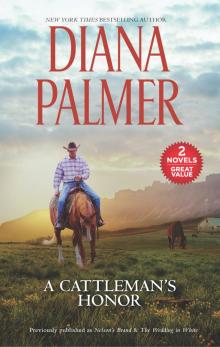 A Cattleman's Honor
A Cattleman's Honor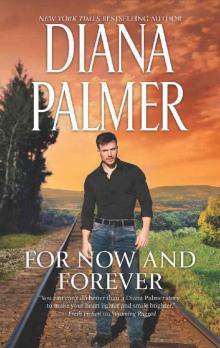 For Now and Forever
For Now and Forever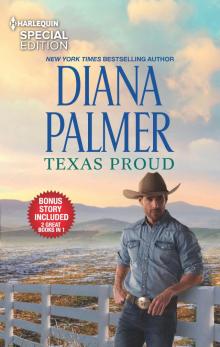 Texas Proud and Circle of Gold
Texas Proud and Circle of Gold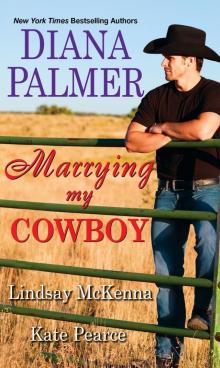 Marrying My Cowboy
Marrying My Cowboy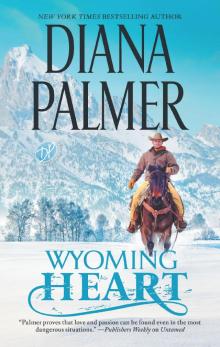 Wyoming Heart
Wyoming Heart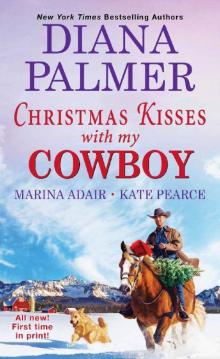 Christmas Kisses with My Cowboy
Christmas Kisses with My Cowboy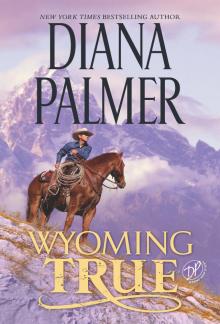 Wyoming True
Wyoming True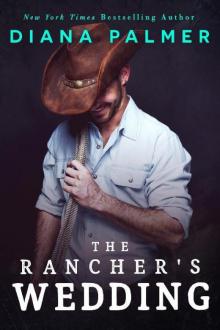 The Rancher's Wedding
The Rancher's Wedding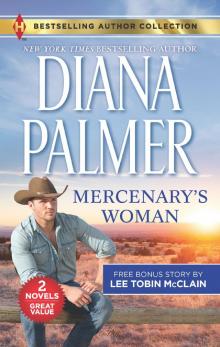 Mercenary's Woman ; Outlawed!
Mercenary's Woman ; Outlawed!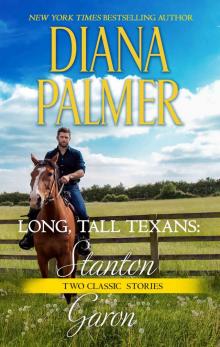 Long, Tall Texans: Stanton ; Long, Tall Texans: Garon
Long, Tall Texans: Stanton ; Long, Tall Texans: Garon Lawless
Lawless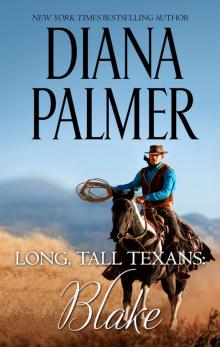 Blake
Blake Escapade
Escapade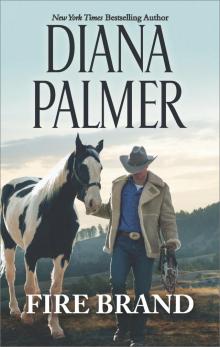 Fire Brand
Fire Brand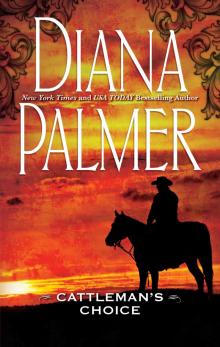 Cattleman's Choice
Cattleman's Choice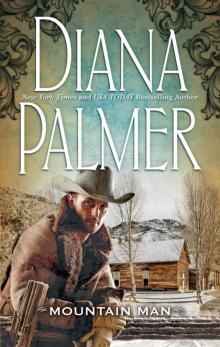 Mountain Man
Mountain Man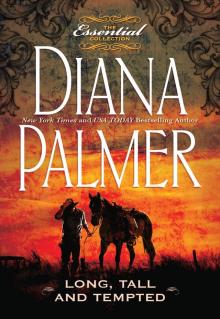 Long, Tall and Tempted
Long, Tall and Tempted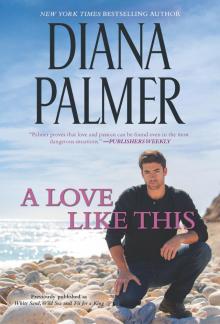 A Love Like This
A Love Like This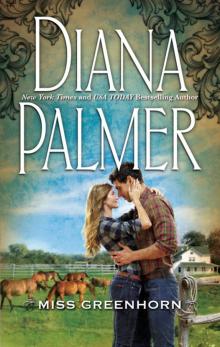 Miss Greenhorn
Miss Greenhorn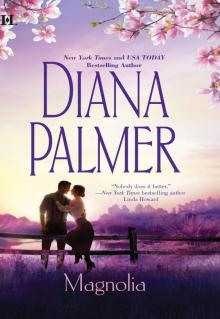 Magnolia
Magnolia Lord of the Desert
Lord of the Desert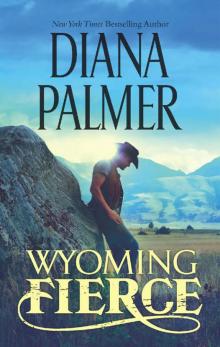 Wyoming Fierce
Wyoming Fierce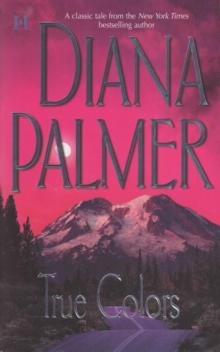 True Colors
True Colors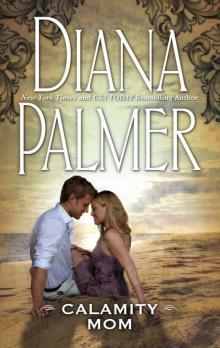 Calamity Mom
Calamity Mom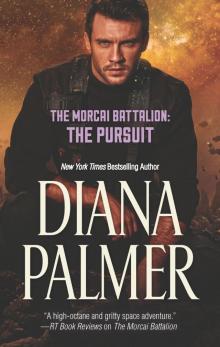 The Pursuit
The Pursuit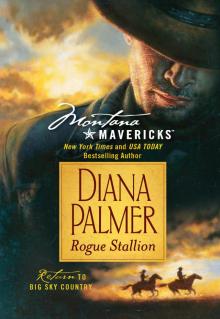 Rogue Stallion
Rogue Stallion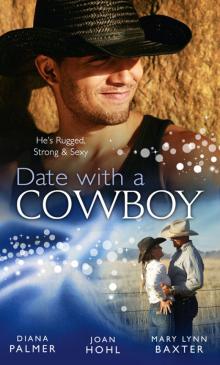 Date with a Cowboy
Date with a Cowboy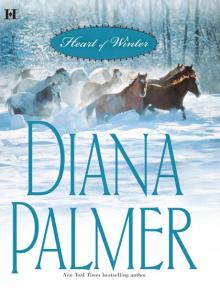 Heart of Winter
Heart of Winter Friends and Lovers
Friends and Lovers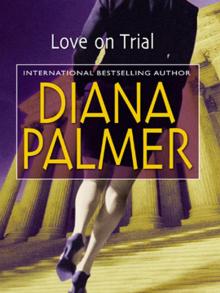 Love on Trial
Love on Trial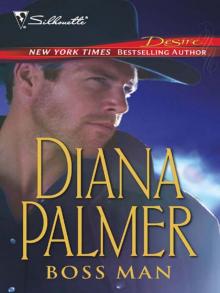 Boss Man
Boss Man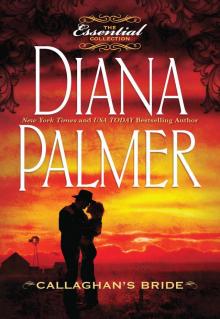 Callaghan's Bride
Callaghan's Bride Before Sunrise
Before Sunrise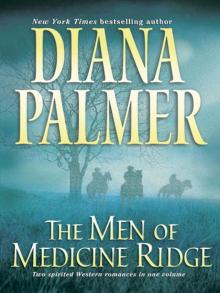 The Men of Medicine Ridge
The Men of Medicine Ridge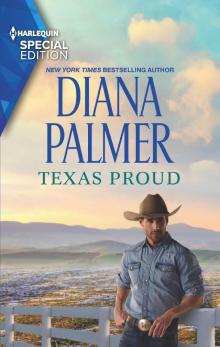 Texas Proud
Texas Proud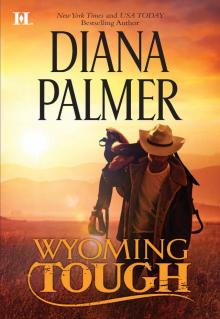 Wyoming Tough
Wyoming Tough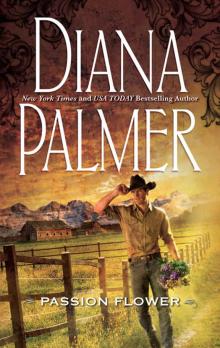 Passion Flower
Passion Flower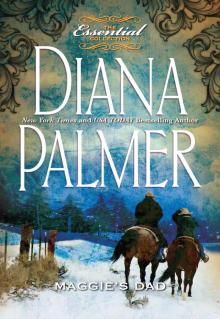 Maggie's Dad
Maggie's Dad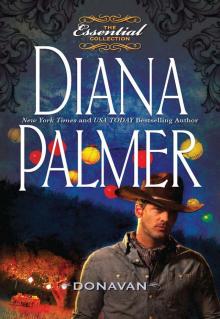 Donavan
Donavan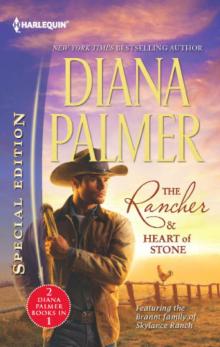 The Rancher & Heart of Stone
The Rancher & Heart of Stone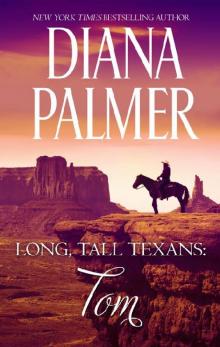 Long, Tall Texans: Tom
Long, Tall Texans: Tom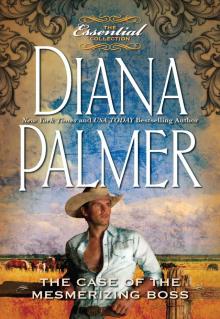 The Case of the Mesmerizing Boss
The Case of the Mesmerizing Boss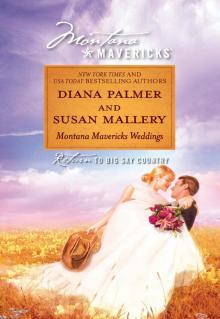 Montana Mavericks Weddings
Montana Mavericks Weddings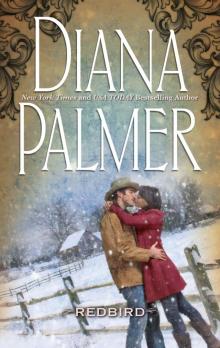 Redbird
Redbird Wyoming Strong
Wyoming Strong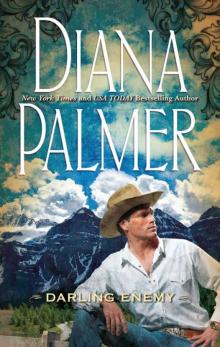 Darling Enemy
Darling Enemy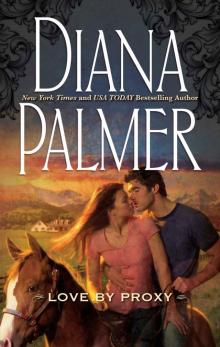 Love by Proxy
Love by Proxy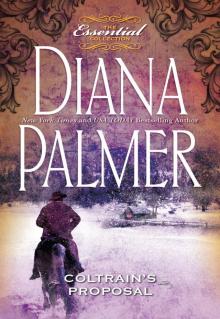 Coltrain's Proposal
Coltrain's Proposal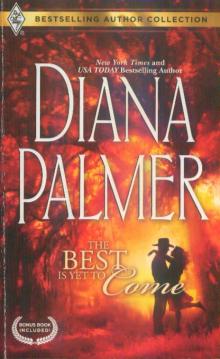 The Best Is Yet to Come & Maternity Bride
The Best Is Yet to Come & Maternity Bride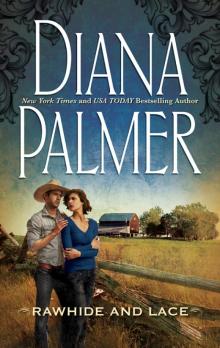 Rawhide and Lace
Rawhide and Lace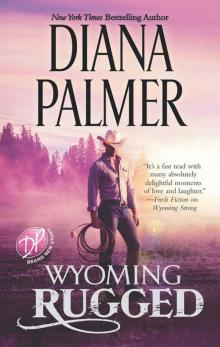 Wyoming Rugged
Wyoming Rugged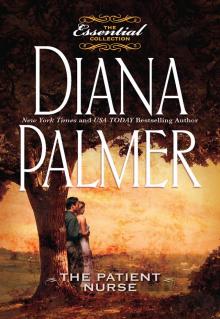 Patient Nurse
Patient Nurse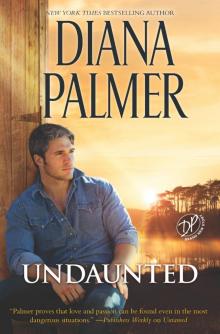 Undaunted
Undaunted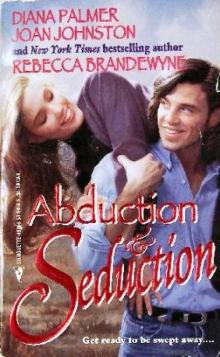 Long Tall Texans Series Book 13 - Redbird
Long Tall Texans Series Book 13 - Redbird Outsider
Outsider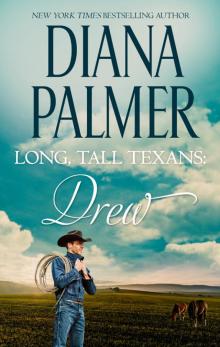 Long, Tall Texans: Drew
Long, Tall Texans: Drew Long, Tall Texans--Christopher
Long, Tall Texans--Christopher Merciless
Merciless A Match Made Under the Mistletoe
A Match Made Under the Mistletoe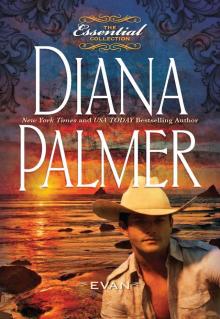 Evan
Evan Hunter
Hunter Now and Forever
Now and Forever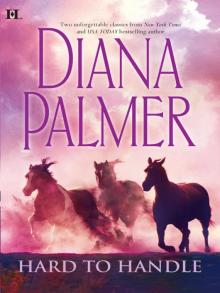 Hard to Handle
Hard to Handle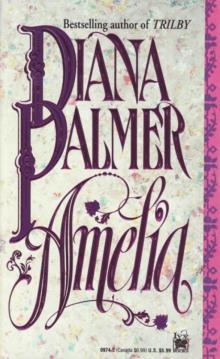 Amelia
Amelia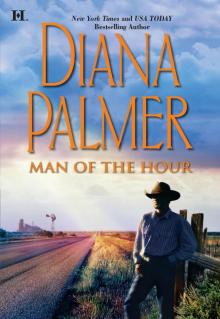 Man of the Hour
Man of the Hour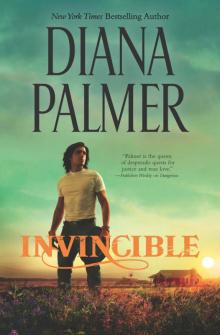 Invincible
Invincible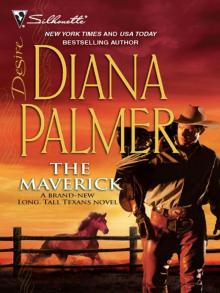 The Maverick
The Maverick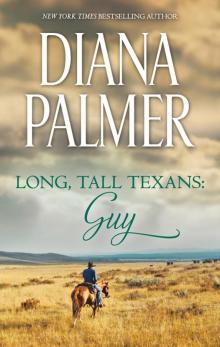 Long, Tall Texans--Guy
Long, Tall Texans--Guy Noelle
Noelle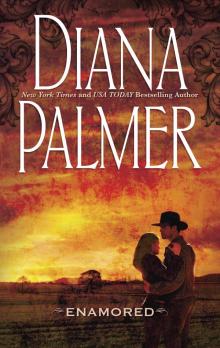 Enamored
Enamored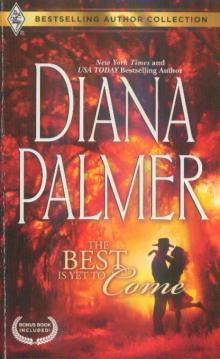 The Best Is Yet to Come
The Best Is Yet to Come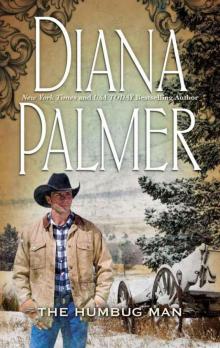 The Humbug Man
The Humbug Man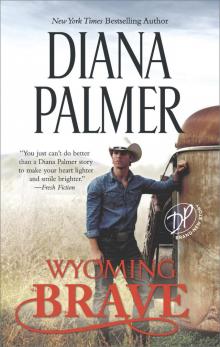 Wyoming Brave
Wyoming Brave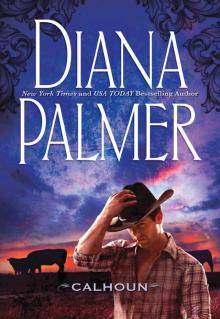 Calhoun
Calhoun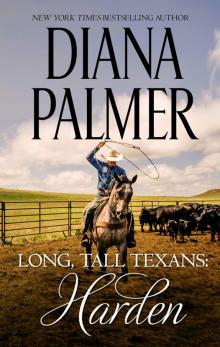 Long, Tall Texans--Harden
Long, Tall Texans--Harden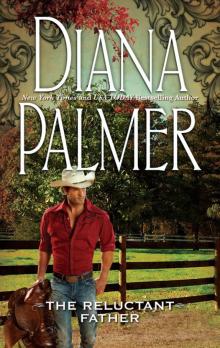 The Reluctant Father
The Reluctant Father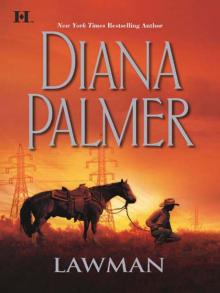 Lawman
Lawman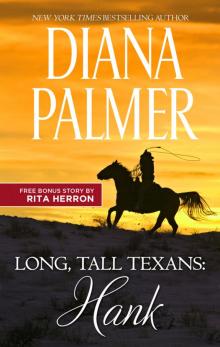 Long, Tall Texans: Hank & Ultimate Cowboy ; Long, Tall Texans: Hank
Long, Tall Texans: Hank & Ultimate Cowboy ; Long, Tall Texans: Hank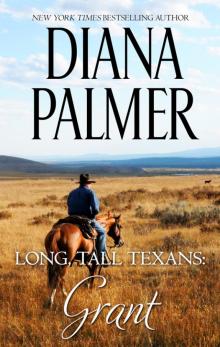 Grant
Grant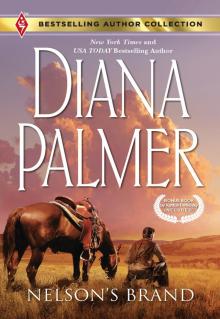 Nelson's Brand
Nelson's Brand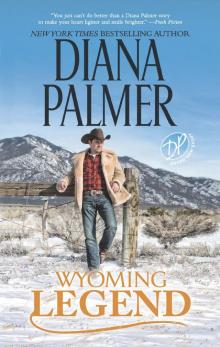 Wyoming Legend
Wyoming Legend Diamond Spur
Diamond Spur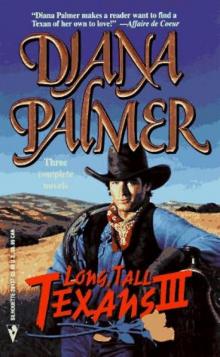 That Burke Man
That Burke Man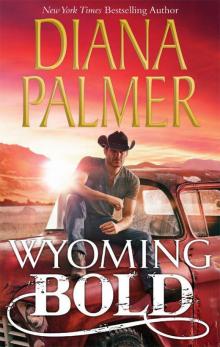 Wyoming Bold (Mills & Boon M&B)
Wyoming Bold (Mills & Boon M&B) Heartless
Heartless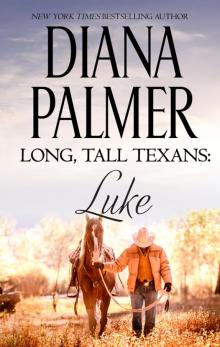 Long, Tall Texans--Luke
Long, Tall Texans--Luke To Have and to Hold
To Have and to Hold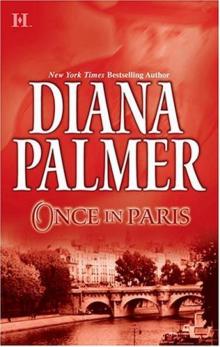 Once in Paris
Once in Paris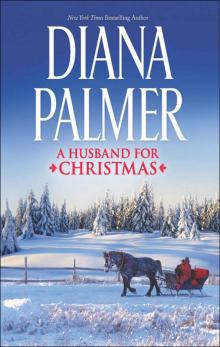 A Husband for Christmas: Snow KissesLionhearted
A Husband for Christmas: Snow KissesLionhearted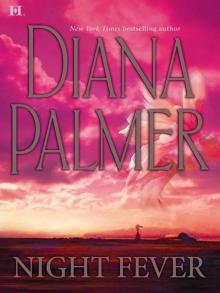 Night Fever
Night Fever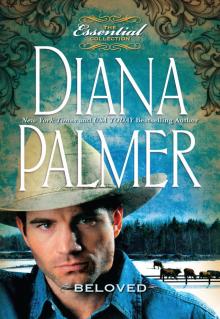 Beloved
Beloved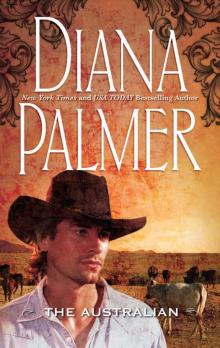 The Australian
The Australian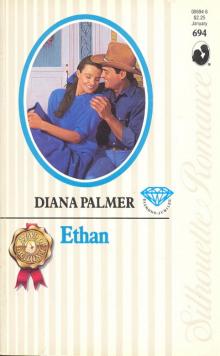 Ethan
Ethan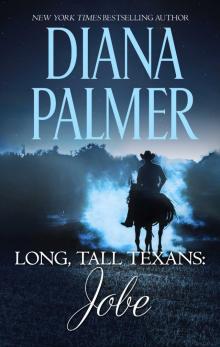 Long, Tall Texans: Jobe
Long, Tall Texans: Jobe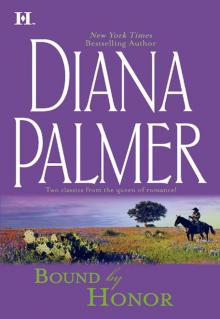 Bound by Honor: Mercenary's WomanThe Winter Soldier
Bound by Honor: Mercenary's WomanThe Winter Soldier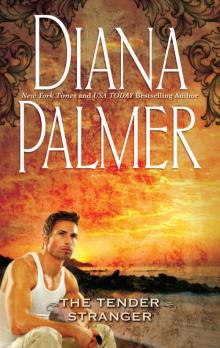 Tender Stranger
Tender Stranger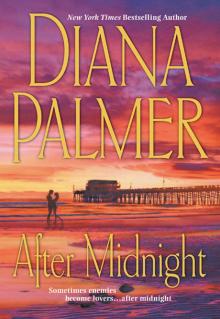 After Midnight
After Midnight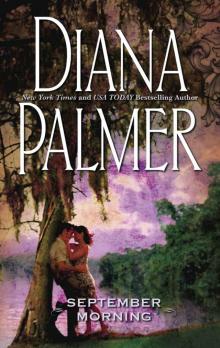 September Morning
September Morning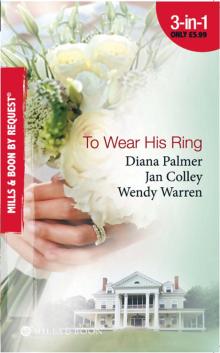 To Wear His Ring
To Wear His Ring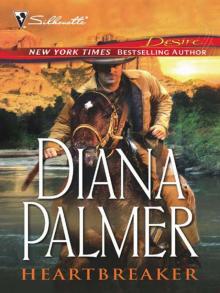 Heartbreaker
Heartbreaker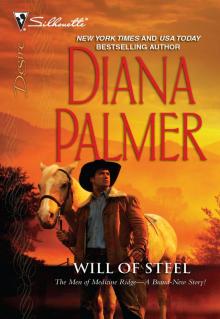 Will of Steel
Will of Steel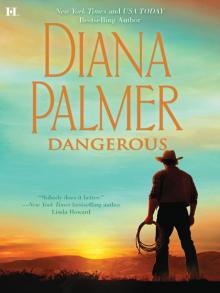 Dangerous
Dangerous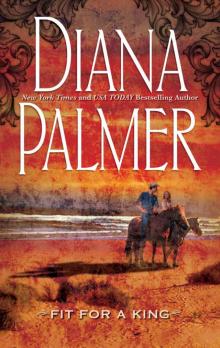 Fit for a King
Fit for a King Diamond in the Rough
Diamond in the Rough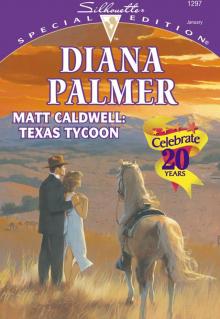 Matt Caldwell: Texas Tycoon
Matt Caldwell: Texas Tycoon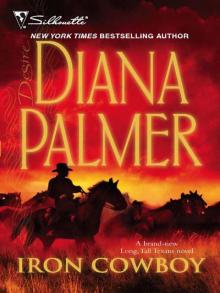 Iron Cowboy
Iron Cowboy Fire And Ice
Fire And Ice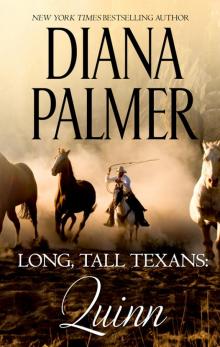 Long, Tall Texans--Quinn--A Single Dad Western Romance
Long, Tall Texans--Quinn--A Single Dad Western Romance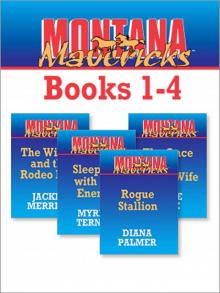 Montana Mavericks, Books 1-4
Montana Mavericks, Books 1-4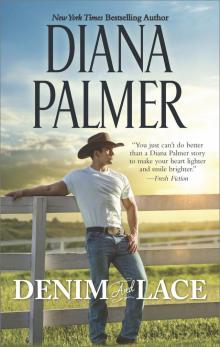 Denim and Lace
Denim and Lace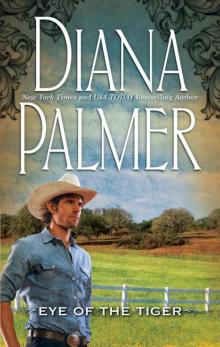 Eye of the Tiger
Eye of the Tiger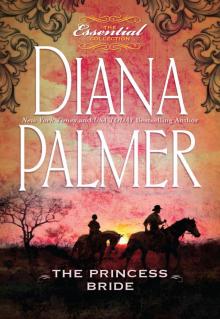 The Princess Bride
The Princess Bride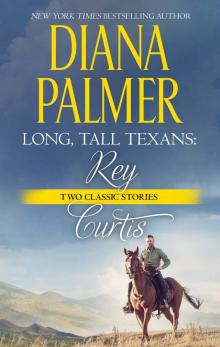 Long, Tall Texans: Rey ; Long, Tall Texans: Curtis ; A Man of Means ; Garden Cop
Long, Tall Texans: Rey ; Long, Tall Texans: Curtis ; A Man of Means ; Garden Cop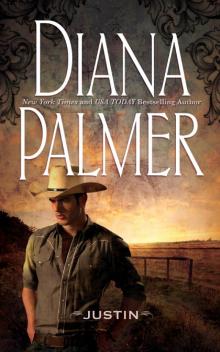 Justin
Justin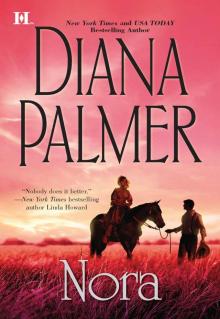 Nora
Nora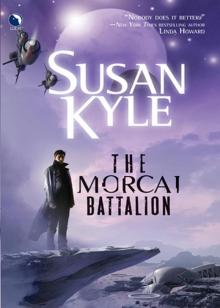 The Morcai Battalion
The Morcai Battalion Heart of Stone
Heart of Stone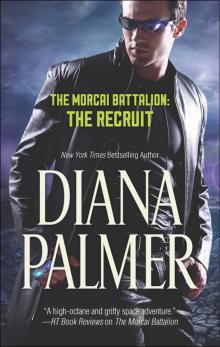 The Morcai Battalion: The Recruit
The Morcai Battalion: The Recruit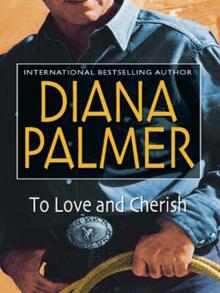 To Love and Cherish
To Love and Cherish Invictus
Invictus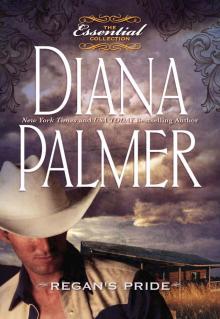 Regan's Pride
Regan's Pride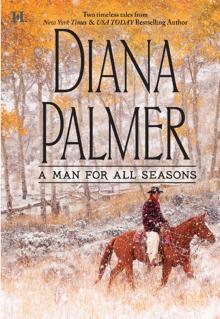 A Man for All Seasons
A Man for All Seasons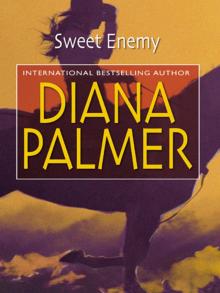 Sweet Enemy
Sweet Enemy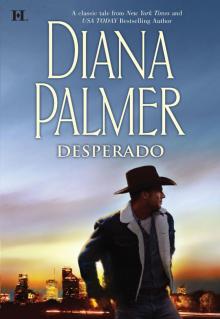 Desperado
Desperado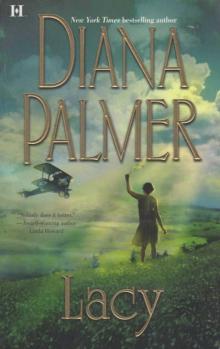 Lacy
Lacy The Winter Man
The Winter Man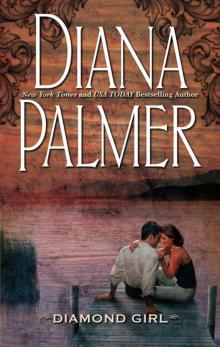 Diamond Girl
Diamond Girl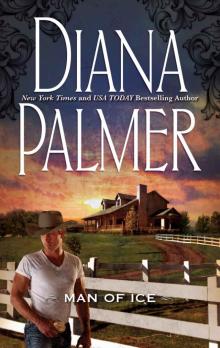 Man of Ice
Man of Ice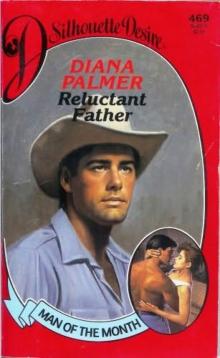 Reluctant Father
Reluctant Father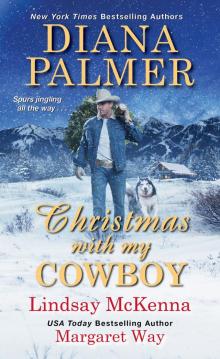 Christmas with My Cowboy
Christmas with My Cowboy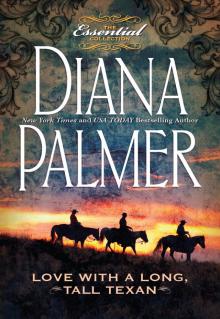 Love with a Long, Tall Texan
Love with a Long, Tall Texan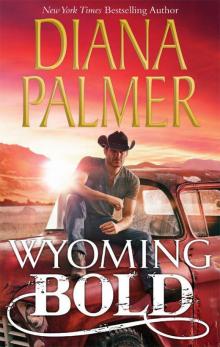 Wyoming Bold wm-3
Wyoming Bold wm-3 King's Ransom
King's Ransom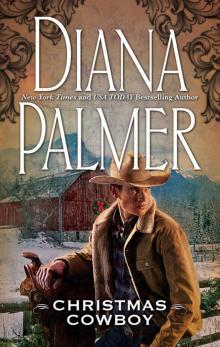 Christmas Cowboy
Christmas Cowboy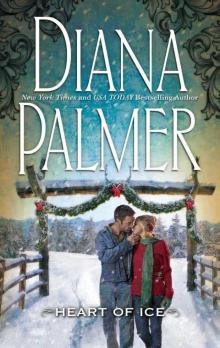 Heart of Ice
Heart of Ice Fearless
Fearless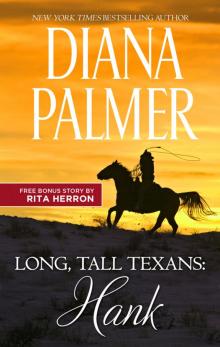 Long, Tall Texans_Hank
Long, Tall Texans_Hank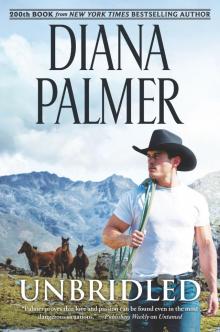 Unbridled
Unbridled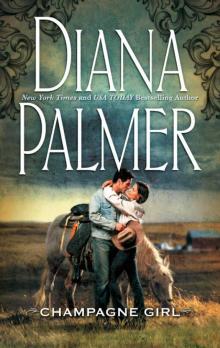 Champagne Girl
Champagne Girl The Greatest Gift
The Greatest Gift Storm Over the Lake
Storm Over the Lake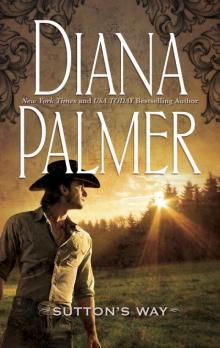 Sutton's Way
Sutton's Way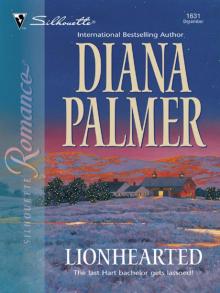 Lionhearted
Lionhearted Renegade
Renegade Betrayed by Love
Betrayed by Love Dream's End
Dream's End All That Glitters
All That Glitters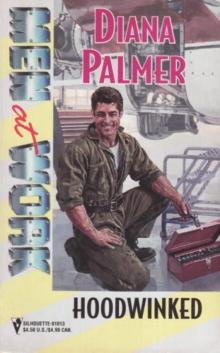 Hoodwinked
Hoodwinked Soldier of Fortune
Soldier of Fortune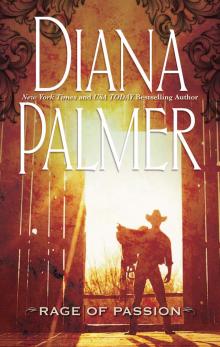 Rage of Passion
Rage of Passion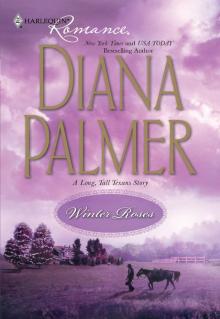 Winter Roses
Winter Roses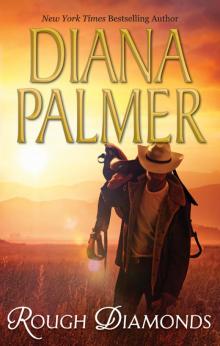 Rough Diamonds: Wyoming ToughDiamond in the Rough
Rough Diamonds: Wyoming ToughDiamond in the Rough Protector
Protector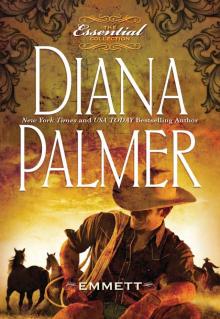 Emmett
Emmett True Blue
True Blue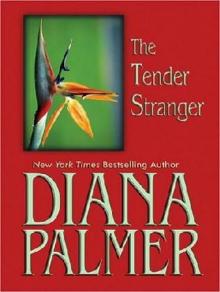 The Tender Stranger
The Tender Stranger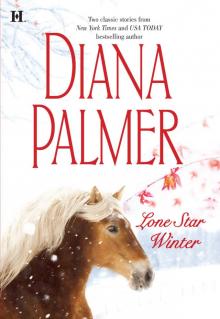 Lone Star Winter
Lone Star Winter Man in Control
Man in Control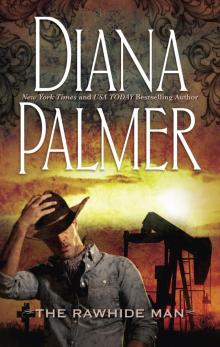 The Rawhide Man
The Rawhide Man Untamed
Untamed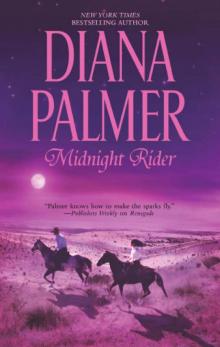 Midnight Rider
Midnight Rider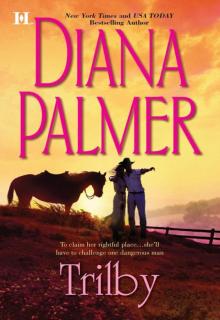 Trilby
Trilby A Long Tall Texan Summer
A Long Tall Texan Summer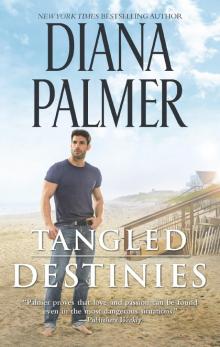 Tangled Destinies
Tangled Destinies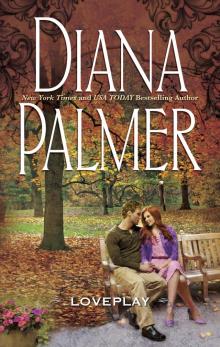 LovePlay
LovePlay Blind Promises
Blind Promises Carrera's Bride
Carrera's Bride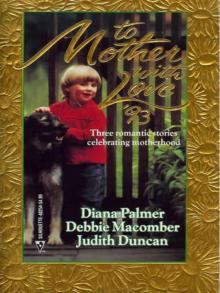 Calamity Mum
Calamity Mum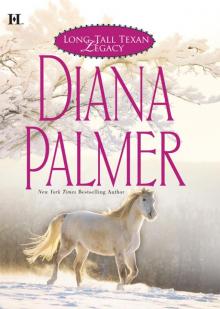 Long, Tall Texan Legacy
Long, Tall Texan Legacy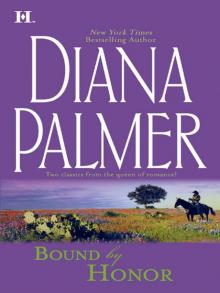 Bound by Honor
Bound by Honor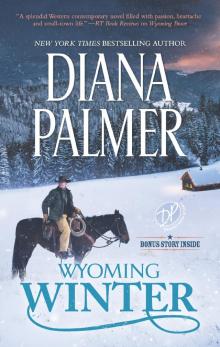 Wyoming Winter--A Small-Town Christmas Romance
Wyoming Winter--A Small-Town Christmas Romance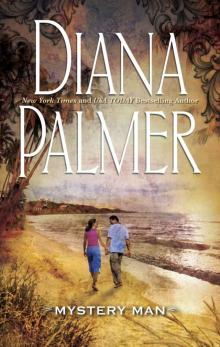 Mystery Man
Mystery Man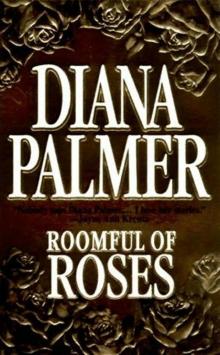 Roomful of Roses
Roomful of Roses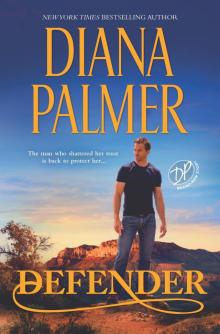 Defender
Defender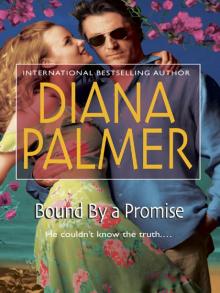 Bound by a Promise
Bound by a Promise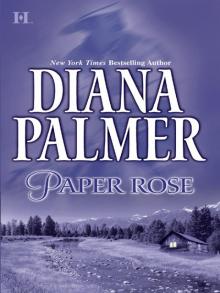 Paper Rose
Paper Rose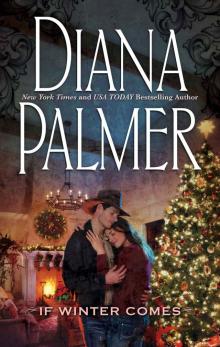 If Winter Comes
If Winter Comes Circle of Gold
Circle of Gold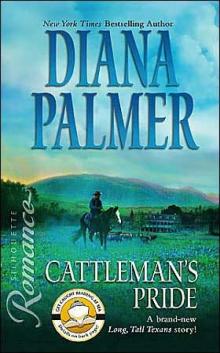 Cattleman's Pride
Cattleman's Pride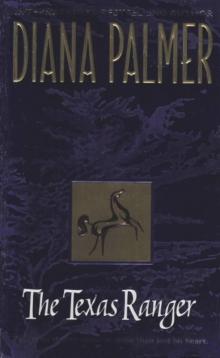 The Texas Ranger
The Texas Ranger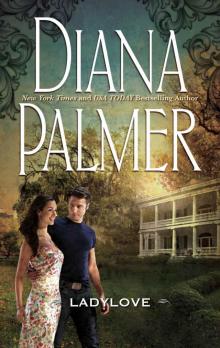 Lady Love
Lady Love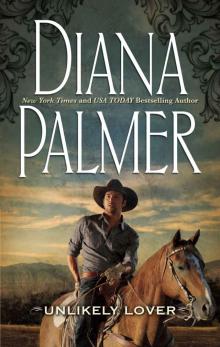 Unlikely Lover
Unlikely Lover A Man of Means
A Man of Means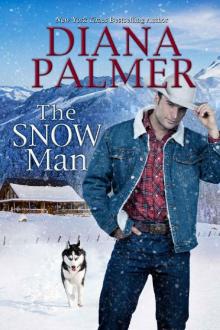 The Snow Man
The Snow Man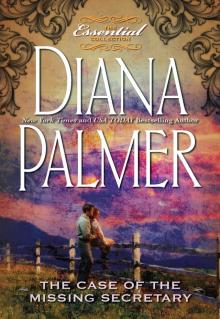 The Case of the Missing Secretary
The Case of the Missing Secretary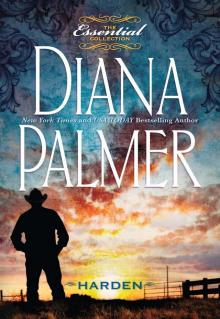 Harden
Harden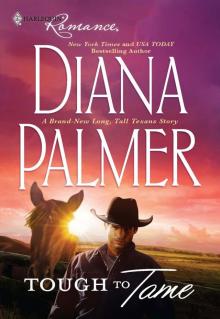 Tough to Tame
Tough to Tame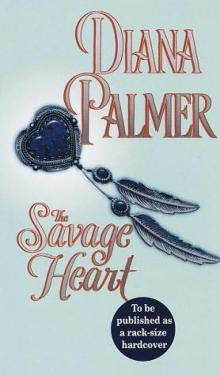 The Savage Heart
The Savage Heart